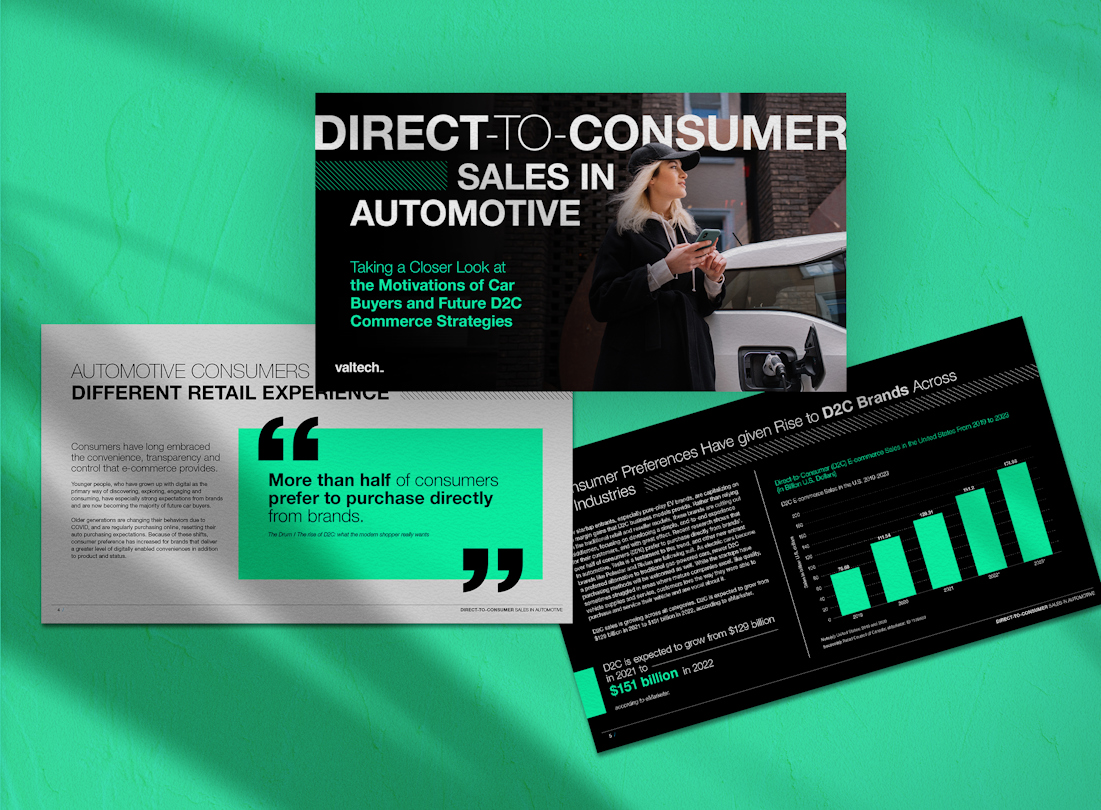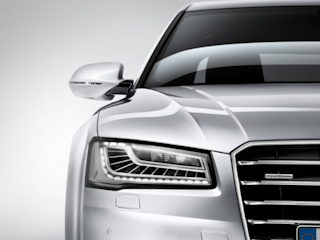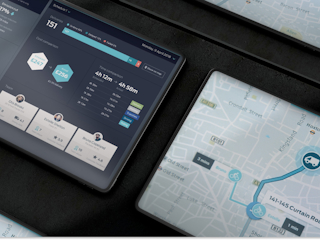However, with the rise of digital technologies and changing consumer preferences, the direct-to-consumer (D2C) model has emerged as a promising alternative. While some legacy automotive manufacturers have embraced D2C, others have been slow to adapt. In this article, we will explore 10 risks that legacy automotive manufacturers face by not embracing D2C as part of their future business strategy.
 1) The risk of losing out on customer data
1) The risk of losing out on customer data
D2C sales allow manufacturers to gather valuable data about their customers, such as their preferences, purchase behavior and feedback. This data can be used to tailor strategies and executions across the entire customer journey and inform product offerings to better meet customer needs. Without this data, legacy manufacturers risk falling behind in terms of innovation and market trends.
2) The risk of decreased customer engagement
Selling directly to the consumer provides an opportunity for manufacturers to engage directly with their customers, building brand loyalty and trust. When customers buy from dealerships, they have limited contact with the manufacturer, and the dealership becomes the primary point of contact. Vice versa, manufacturers have little control over the customer experience. Dealerships are responsible for delivering the product and providing customer service, which can vary widely from dealership to dealership. This can lead to a decreased sense of connection to the brand and reduced customer loyalty. D2C models allow manufacturers to have greater control over the customer experience, ensuring a consistent experience across all sales channels.
3) Difficulty adapting to changing consumer preferences
Consumers today are looking for more than just a car; they want an experience. D2C sales allow manufacturers to offer a personalized, seamless customer experience that meets these changing preferences. Additionally, with control over customer data and the increased opportunities for direct customer engagement, manufacturers are able to see the trends directing customer behavior and to respond to those trends faster. This way, it no longer feels like needing to constantly play catchup with the evolving market. Legacy manufacturers that fail to adapt risk losing out on ROI by creating experiences that do not resonate with their audiences, and therefore see far less interaction.
 4) Reduced brand control
4) Reduced brand control
When selling through dealerships, manufacturers rely on the dealership to represent their brand. This can lead to a loss of brand control, as dealerships may not represent the brand as intended. D2C sales allow manufacturers to have greater control over their brand image and ensure a consistent brand experience across all channels. This brand consistency is an important element towards building brand loyalty in consumers.
5) Limited pricing flexibility
When manufacturers sell through dealerships, they often have little control over pricing. Dealerships have the final say on pricing, which can limit the manufacturer's ability to be competitive or adjust pricing to match market trends. It also exposes manufacturers to bad brand perception due to dealers charging ridiculous mark-ups during supply crunches as widely seen since the early days of the Covid pandemic. When dealerships have the power to set the prices for your products, this can lead to additional inconsistency in your brand, leading to a decrease in brand loyalty.
6) Increased costs
Selling through dealerships comes with a significant cost, as manufacturers must pay for dealer fees and incentives. By selling directly to consumers, manufacturers can cut out the middleman and reduce their costs.
 7) The risk of competing against new entrants for the same customers
7) The risk of competing against new entrants for the same customers
The rise of electric vehicles and autonomous driving technologies has attracted new players to the automotive industry, such as Tesla and Rivian. These companies have embraced the D2C model, offering a seamless customer experience that is difficult for legacy manufacturers to match. As the public consciousness continues to move in favor of EVs and autonomous driving, these new entrants have already captured the market through the benefits of their D2C model. Legacy brands risk falling behind in the crowded field of EV marketing if they have to build a D2C infrastructure while also trying to increase sales of their new EVs.
8) Reduced agility
Selling through dealerships can be slow and cumbersome, as manufacturers must work with dealers to get their products to market. D2C sales offer greater agility, allowing manufacturers to respond quickly to market trends and changing consumer preferences.
9) Missed opportunities for upselling and cross-selling
When selling through dealerships, manufacturers have limited opportunities for upselling and cross-selling. Using the first-party customer data available through D2C sales allows manufacturers to offer personalized product recommendations and upsell opportunities at the right time and in effective ways, increasing revenue and customer satisfaction. When you control your customer data, you know what they’ve bought in the past and what sales tactics worked to land those sales. Without it, you must rely on dealerships to upsell your products effectively.
 10) Limiting market reach
10) Limiting market reach
D2C sales offer an opportunity for manufacturers to reach new markets, such as younger generations who prefer to buy products online. Legacy manufacturers that fail to embrace D2C risk missing out on these new markets and losing market share.
Mitigating risks and maximizing rewards in D2C
Legacy automotive manufacturers that have not embraced the D2C model as part of their business strategy face several risks across customer engagement and experience, business agility and cost reduction, competition and market reach. By embracing D2C, automotive manufacturers can benefit from a personalized customer experience, greater control over pricing and branding, reduced costs, and increased revenue opportunities. Most of all, it provides better ability to ready the business for future participation in various market-places and new, vital partnerships and business expansions.












